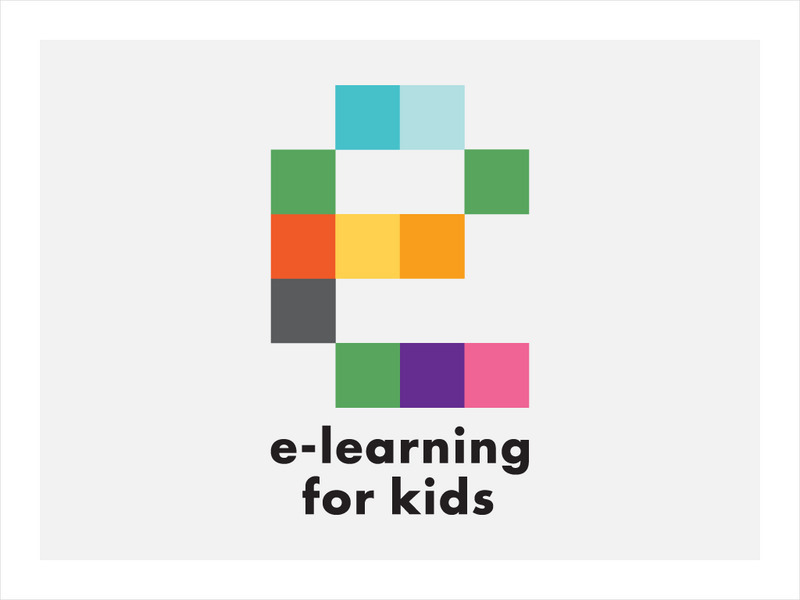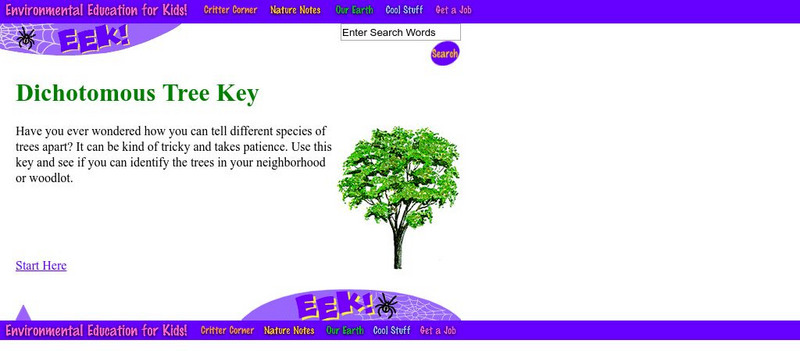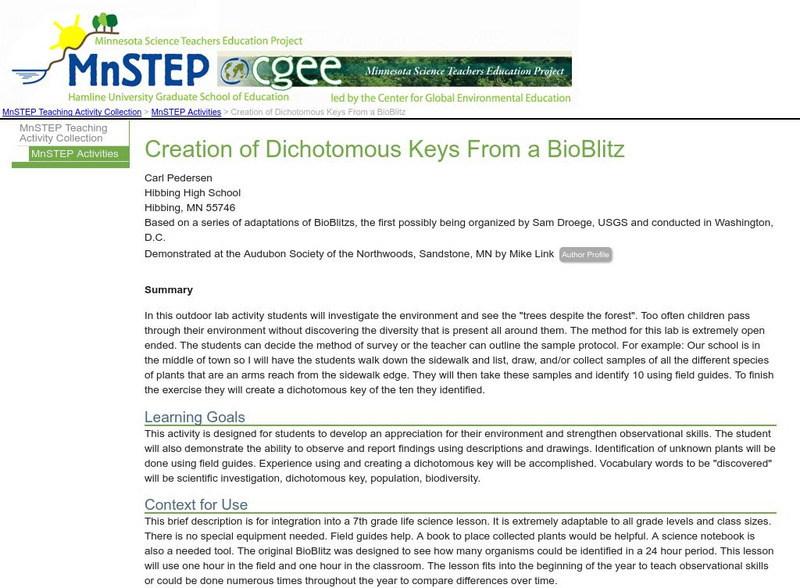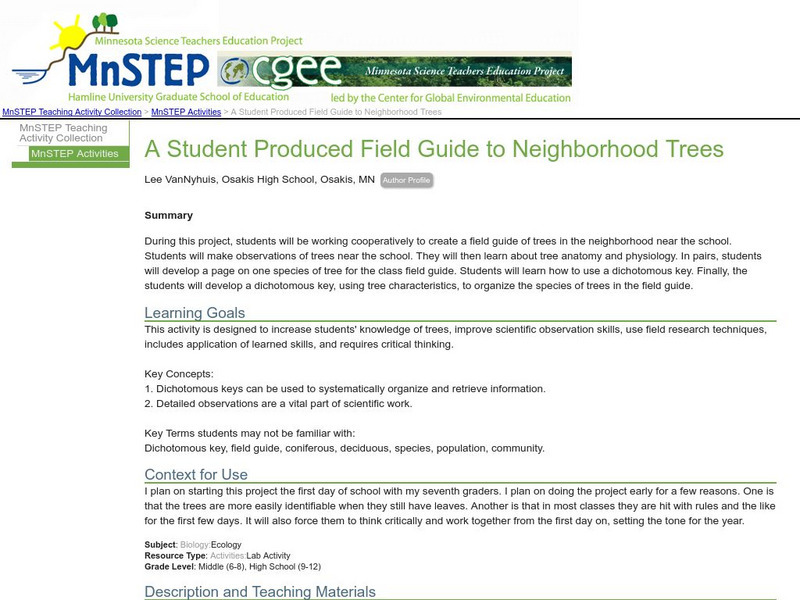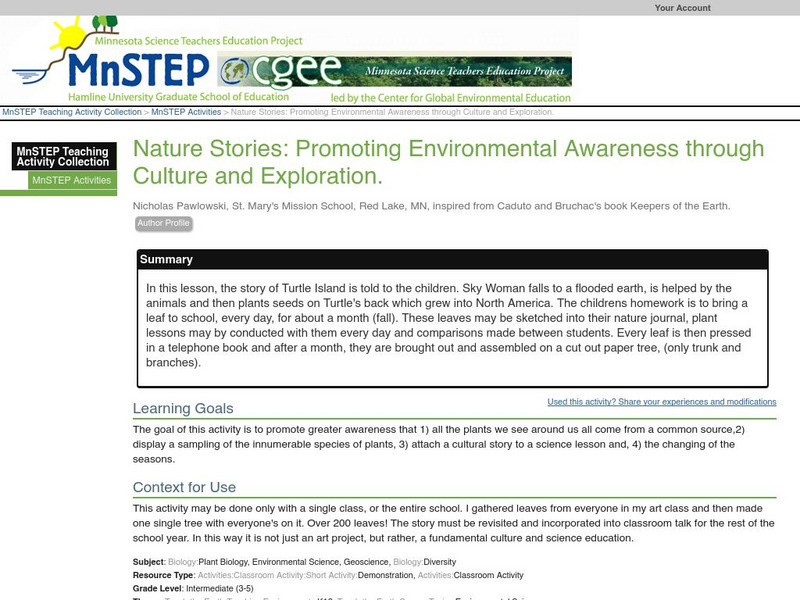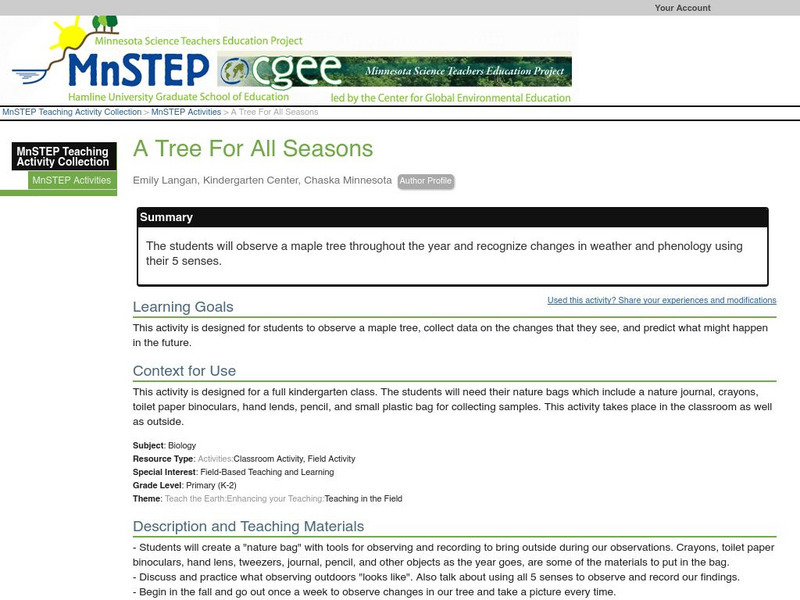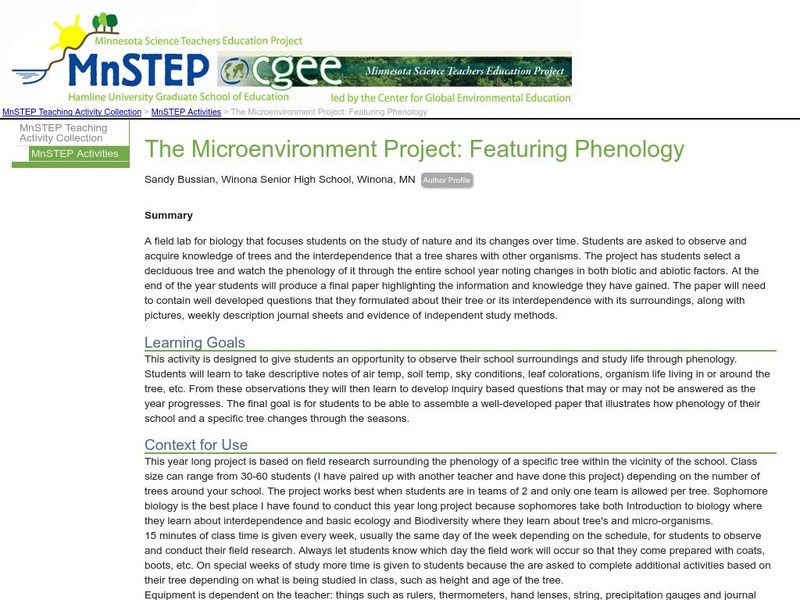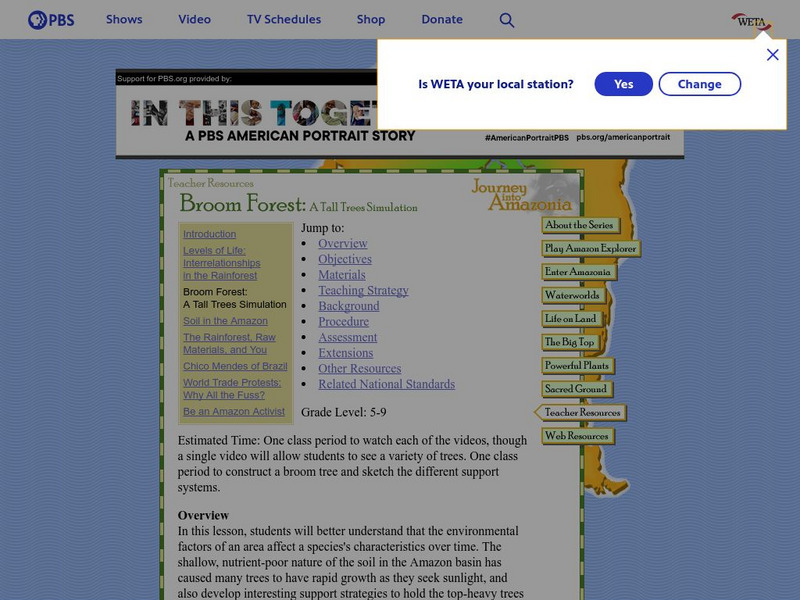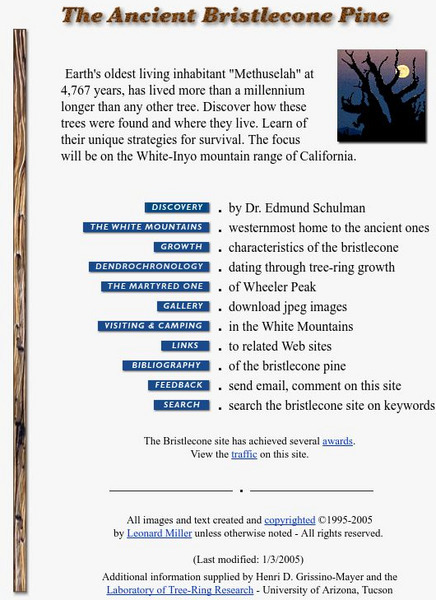Hi, what do you want to do?
Utah Education Network
Uen: Looking at the Community Tree
A neighborhood tree is observed for evidence of interactions between living and nonliving things.
Alabama Learning Exchange
Alex: The Giving Tree
Lesson using the book The Giving Tree to learn about friendship and the Treetures website to learn about the importance of trees. In groups of four, students create posters about the connection between trees and people. (Note: Book...
San Diego Zoo Global
San Diego Zoo: Trees
Comprehensive overview of trees features facts on structure, leaves, species, characteristics, reproduction, and conservation.
University of Florida
Florida Museum of Natural History: Plant Life
This teacher's guide focuses on the fascinating world of plants. Through books and other print materials, and exploration of actual plants, children will identify plants as living things, examine the parts of plants, experiment with what...
NOAA
Noaa: Be a Tree Ring Detective [Pdf]
Discover the reason why trees have rings. Then use your skills of inquiry to decide which tree samples are the oldest, based on their rings.
E-learning for Kids
E Learning for Kids: Science: Iceland: Plants: What Parts Do Plants Have?
Explore Benny's garden, and he will show how plants and trees are built. Join him to to learn about basic plant parts.
Library of Congress
Loc: Poetry 180: Neglect
This eight-stanza poem describes a neglected fruit tree that will not bear healthy fruit.
Environmental Education for Kids
Eek!: Wisconsin's Champion Trees
Environmental Education for Kids offers step-by-step procedures to measure trees. Designed for Wisconsin's Champion Trees, these guidelines can be adopted for use in any state or area.
Environmental Education for Kids
Eek!: Maple Syrup Time Activities
These hands-on activities teach students about the many uses of maple trees.
Environmental Education for Kids
Eek!: Evergreens
Site chronicles Wisconsin's Evergreen and Conifer trees. There are descriptions of the various tree types. Additionally, site details the uses of these trees in nature. Ideal for grades 4-8.
Environmental Education for Kids
Eek!: Dichotomous Tree Key
Identify a tree using this interactive identification tool.
Science Education Resource Center at Carleton College
Serc: Creation of Dichotomous Keys From a Bio Blitz
An outdoor lab where students investigate the environment and decide a method of survey to identify trees in their area. To finish the exercise they will create a dichotomous key of the ten they identified.
Science Education Resource Center at Carleton College
Serc: Minnesota Tree Blitz
This activity serves as an introduction to tree identification and helps middle schoolers learn about the natural world around them. While exploring trees of Minnesota, students will recognize biodiversity of trees and learn how to...
Science Education Resource Center at Carleton College
Serc: A Student Produced Field Guide to Neighborhood Trees
During this project, students will be working cooperatively to create a field guide of trees in the neighborhood near the school. Students will make observations of trees near the school. They will then learn about tree anatomy and...
Science Education Resource Center at Carleton College
Serc: Promoting Environmental Awareness Through Culture and Exploration
In this lesson, the story of Turtle Island is told to the students. Each student will collect leaves and bring one to school, every day, for about a month. Discuss as a class where they come from and why they are all different. Every...
Science Education Resource Center at Carleton College
Serc: English Language Learners Create a Botanic Field Guide
Students gather information and create a botanic field guide which includes the common and scientific names for plants (trees, shrubs, wildflowers, plants) typically found in their surroundings.
Science Education Resource Center at Carleton College
Serc: A Tree for All Seasons
The students will observe a maple tree throughout the year and recognize changes in weather and phenology using their 5 senses.
Science Education Resource Center at Carleton College
Serc: Mn Step: Schoolyard Trees: Creating a Field Guide for Your School
An interesting activity where students observe and identify the trees in the schoolyard, then create a field guide for others to use.
Science Education Resource Center at Carleton College
Serc: The Microenvironment Project: Featuring Phenology
A field lab for biology that focuses students on the study of nature and its changes over time. Students are asked to observe and acquire knowledge of trees and the interdependence that a tree shares with other organisms.
Cynthia J. O'Hora
Mrs. O's House: Tree Inventory and Map Project
Canvas the neighborhood or school grounds to identify the quantity and types of trees found. Students will map out the area including all of the trees locations. Reviewing the map, students will determine whether areas may benefit from...
PBS
Pbs Kids: Plum Landing: Popular Poplars
After watching the "Popular Poplars" episode of PBS Kids' Plum Landing, students will draw a picture of poplar trees and publish them online. Students will include butterflies alongs their trees.
PBS
Pbs Kids: Plum Landing: Flying Frog: Jungle Mission
After watching the "Flying Frog" episode of PBS Kids' Plum Landing, students will draw pictures of flying tree frogs and publish them online.
PBS
Pbs Teachers:broom Forest: A Tall Trees Simulation
Explore environmental factors of an area that affect a species' characteristics over time. Construct a "broom" tree, sketch support structures similar to those used by the tall Amazon trees and explain the limitations of such structures.
Other
The Ancient Bristlecone Pine
Read about the discovery of "Methuselah," the oldest living tree. Where the bristlecone pines grow, in what conditions, and how they were dated.








